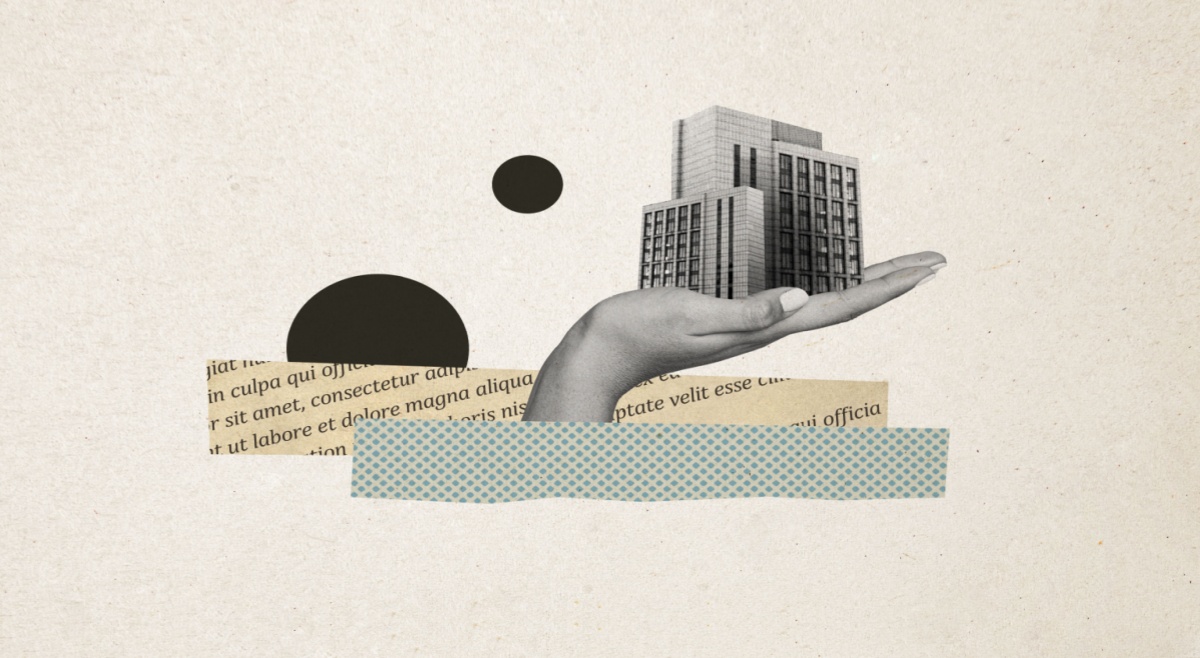Table of Contents
Quality Service Guarantee Or Painting Free

Get a rental agreement with doorstep delivery

Find the BEST deals and get unbelievable DISCOUNTS directly from builders!

5-Star rated painters, premium paints and services at the BEST PRICES!
Loved what you read? Share it with others!

What is Haryana Apartment Ownership Act, 1987? Every Apartment Owner Should Know in 2025
Table of Contents
The Haryana Apartment Ownership Act, enacted in 1983 and significantly amended in 1987, stands as a pioneering legislation governing apartment ownership rights and responsibilities in Haryana. This comprehensive Haryana apartment ownership rule establishes clear guidelines for property ownership, maintenance procedures, and dispute resolution mechanisms while ensuring transparent management of multi-story residential buildings. The Act has become instrumental in regulating the growing apartment culture in urban areas of Haryana, protecting both builders' and owners' interests.
What is the Apartment Ownership Act?
The Apartment Ownership Act is a legal framework that regulates the ownership and management of apartments in multi-story buildings. It defines the rights and obligations of apartment owners, establishes guidelines for common area maintenance, and creates a structured system for property management through owners' associations. The Act ensures that each owner has exclusive rights to their unit while sharing responsibility for common facilities.
Objectives of the Haryana Apartment Ownership Act, 1987
The primary objectives include establishing clear property rights for apartment owners, ensuring transparent management of multi-story buildings, and protecting owners' interests. The Haryana apartment ownership act rules aims to regulate the construction, maintenance, and transfer of apartments while providing a legal framework for resolving disputes between owners and creating standardized procedures for apartment ownership registration.
Quality Service Guarantee Or Painting Free

Get a rental agreement with doorstep delivery

Find the BEST deals and get unbelievable DISCOUNTS directly from builders!

5-Star rated painters, premium paints and services at the BEST PRICES!
Key Definitions:
Apartment Owner: Under the Haryana Apartment Ownership Act, an apartment owner is defined as the person or entity holding exclusive ownership rights to a specific apartment unit through a registered deed. This ownership includes both the individual unit and an undivided interest in the common areas, along with the right to sell, transfer, or lease the property according to legal provisions.
Common Areas and Facilities: Common areas encompass all parts of the building not within individual apartments, including the land underneath and surrounding the building, basements, foundations, main walls, roofs, halls, corridors, lobbies, stairs, fire escapes, entrances, exits, community facilities, installations for central services like power, light, gas, and water, elevators, tanks, pumps, and all other parts necessary for the building's existence and safety.
Association of Apartment Owners: The Association consists of all apartment owners acting as a legal entity responsible for maintaining and managing common areas. It has the authority to make rules, collect maintenance charges, enforce regulations, hire staff for building maintenance, and represent owners' collective interests in legal matters. The Association must ensure compliance with the Act's provisions and maintain financial records.
Rights and Duties of Apartment Owners
Under the Haryana Apartment Ownership Act, apartment owners have specific rights and responsibilities that ensure harmonious living and proper property maintenance. These rights and duties are legally binding and essential for effectively implementing the Act's provisions.
- Owners have exclusive rights to modify their apartment interiors while maintaining structural integrity and obtaining necessary permissions from the association.
- Every owner must contribute proportionately to the maintenance of common areas and facilities as per the association's guidelines.
- Owners can participate in association meetings, vote on important decisions, and contest for management committee positions.
- All apartment owners must regularly pay maintenance charges and comply with building bylaws.
The Role of the Association of Apartment Owners
The Association plays a crucial role in implementing the Haryana Apartment Ownership Act by managing common areas and ensuring compliance with regulations. It is the primary administrative body responsible for the building's operation and maintenance.
- Maintains detailed records of all financial transactions, including maintenance charges and expenditures on common facilities.
- Organizes regular meetings to discuss and resolve building maintenance and management issues.
- Enforces building bylaws and regulations to ensure proper conduct and maintenance of property standards.
- Represents apartment owners in legal matters and disputes related to common areas and facilities.
Declaration and Deed of Apartment
The declaration and deed are fundamental documents under the Haryana Apartment Ownership Act that establish legal ownership and define property rights. These documents outline specific details about the property and ownership terms.
- The declaration must include detailed descriptions of the land, building specifications, and individual apartment locations.
- Each deed should specify the exact percentage of undivided interest in common areas allocated to the apartment.
- The documents must clearly state restrictions on apartment use and modifications to ensure compliance with building regulations.
- All transfers and modifications to ownership must be properly documented and registered as per the Act's requirements.
Common Expenses and Profits
The Haryana Apartment Ownership Act establishes clear guidelines for managing shared expenses and distributing profits among apartment owners. This system ensures fair financial management and maintenance of the property while protecting owners' interests.
- Maintenance charges are calculated based on the apartment's carpet area and distributed proportionately among all owners.
- Income generated from common facilities must be fairly distributed according to each owner's percentage share in the property.
- Emergency repair funds must be maintained separately and used only for unexpected maintenance requirements.
- Special assessments for major repairs or improvements require approval from the association members as per Act guidelines.
Legal Procedures and Dispute Resolution
The Act provides comprehensive mechanisms for resolving disputes between apartment owners and the association. It outlines specific legal procedures and remedies while ensuring fair and efficient resolution of conflicts.
- Disputes must first be addressed through the internal grievance redressal system of the apartment owners' association.
- Legal proceedings can be initiated only after exhausting internal resolution mechanisms as specified in the Act.
- The Act provides for the appointment of arbitrators in cases where disputes cannot be resolved through mutual agreement.
- Time-bound resolution procedures ensure quick handling of maintenance and ownership-related conflicts.
Amendments and Updates to the Act
The Haryana Apartment Ownership Act 1983 has undergone several modifications to address evolving needs and challenges in apartment ownership. These changes reflect modern requirements and improved management practices.
- Recent amendments have strengthened provisions for maintenance fund management and transparency in financial operations.
- Updates include enhanced protection for apartment owners' rights and clearer guidelines for association governance.
- Modern dispute resolution mechanisms have been incorporated to expedite conflict resolution processes.
- New provisions address technological advancements in building management and security systems.
Summary of the Haryana Apartment Ownership Act
The Haryana Apartment Ownership Act is a crucial legal framework that governs apartment ownership and management in the state. Establishing clear rights, responsibilities, and procedures ensures harmonious living in multi-story buildings while protecting owners' interests. The Act's comprehensive coverage of common areas, maintenance, dispute resolution, and financial management creates a structured environment for apartment living. It continues to adapt to modern requirements through regular amendments and updates while maintaining its core objective of protecting apartment owners' rights. Its successful implementation has made it a model legislation for apartment ownership regulation in India.
Frequently Asked Questions
Ans: The Act protects owners by granting them exclusive rights to their units and a share in common areas. It ensures transparent management through mandatory association formation, regulated maintenance charges, and clear dispute-resolution procedures. The Act also requires proper documentation of ownership and guarantees owners' participation in decision-making processes.
Ans: The Association must be formed when the number of apartments in a building exceeds four units. It requires registration under the Act, election of managing committee members, creation of bylaws, and establishment of a maintenance fund. All apartment owners automatically become members upon property purchase.
Ans: Maintenance charges are calculated based on the carpet area of individual apartments and their proportionate share in common facilities. The Association determines the rate per square foot annually, considering expenses like security, cleaning, repairs, and utilities. Special assessments require majority approval from owners.
Ans: Disputes are first addressed through the internal grievance redressal system of the Association. If unresolved, matters can be referred to arbitration as specified in the Act. Legal proceedings can be initiated in civil courts if arbitration fails, with time-bound resolution procedures.
Ans: Owners can modify their apartment interiors provided they don't affect the building's structural integrity or common areas. All modifications require prior approval from the Association and must comply with building bylaws. Major structural changes are generally prohibited without unanimous consent.
Recommended Reading

What is Haryana Apartment Ownership Act, 1987? Every Apartment Owner Should Know in 2025
January 31, 2025
2656+ views
Loved what you read? Share it with others!
Most Viewed Articles

Franking Charges Explained: Meaning and Benefits
January 31, 2025
1116765+ views

Society Maintenance Charges : Meaning, Cost, Types and Calculation
January 31, 2025
199756+ views

BBMP E-Khata Registration process for property owners in Bangalore, Karnataka in 2025
March 19, 2025
145603+ views

Daughter's Right in Fathers' Property - the Law is Finally Equal for both Genders?
June 1, 2025
144463+ views

Rectification Deed Format and Process in India 2025
June 1, 2025
135222+ views
Recent blogs in
What Is Cidco Lease Deed: Types, Tenure, Rights and Responsibilities in India 2026
February 20, 2026 by Ananth
Perpetual Lease Deed: Meaning, Rights, Benefits and Registration Process in India 2026
February 20, 2026 by Vivek Mishra
Ground Lease Vs Land Lease: Meaning, Key Features and Legal Distinctions in 2026
February 20, 2026 by Vivek Mishra
Lease Extension Agreement: Required Documents, Cost and Registration in India 2026
February 20, 2026 by Ananth
Mobile Home Lease Agreement: Types, Rights, Rules & Legal Requirements in 2026
February 20, 2026 by Ananth









 Full RM + FRM support
Full RM + FRM support
Join the conversation!